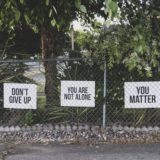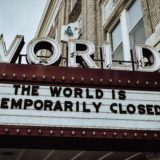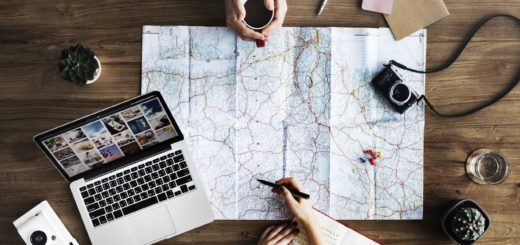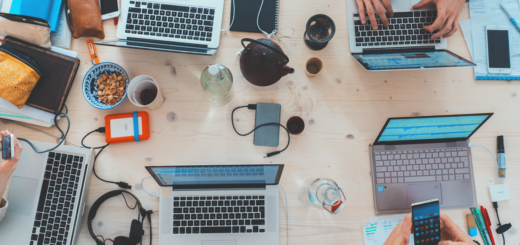Mental Health and COVID-19: a Silent Struggle
Dressed in pajamas, disheveled hair, sunglasses on, I stepped outside onto my front porch. Even with protection, my eyes felt like fingers were pinching each side, causing my vision to blur. I am not sure when I last ventured out of the house, but today I was determined to go to the pharmacy to pick up my medication.
After adjusting to the sun, I thumbed through my pockets for my keys, taking deep breaths all the way to the car. Once I got in, I grabbed a lysol wipe I had stuck in my pocket and started wiping down the surfaces, still taking deep breaths.
On my way to the pharmacy, I had this tightness in my chest and drumming in my ears. My vision started to blur and my breathing became erratic. I shot my arm out before me, grasping at the dashboard to find the knob for the radio. I felt if I didn’t have some sort of distraction, my feelings would overwhelm my senses rendering me unable to drive. The music helped. The volume of the radio was overpowering the rapid thud, thud, thud of my pulse.
I eased into the parking lot of my local pharmacy and guided my car into the first open spot. Up until I arrived I had remained relatively calm, slowing my heart rate to the beat of the music.The pounding in my ears made its way to the forefront of my mind. I felt I was worse off now than before I left the house.
This is what it is like for me to leave the house before the pandemic had spread across the globe. It has only intensified since. As a Virtual Assistant and Writer, I don’t usually leave my home unless I need groceries or the necessities, but even then my partner will likely get what I need while I stay home and work. This is what it is like for someone with a severe anxiety disorder and OCD to leave the house.
Imagine what it is like for those in the pandemic who suffer the same disorders or worse. I can. People with mental illness are already familiar with distance and find it hard to reach out to those who can help them. I had a talk with my therapist this morning about the issue of isolation coupled with the fact that people struggling with their mental health need the human contact that others might not need. I explained my frustrations about being socially distant at a time when I needed to be around people the most. It was hard to hear her confirm my fears and explain, “I know it is difficult, but you have to keep a positive mindset and play to your strengths to get through this challenging time.”
Frustrated to no end with myself and my situation I got out my journal and began to scribble some of my thoughts down. I knew I craved the physicality of human interaction instead of observing from far away, but the negative feelings of overwhelming anxiety and panic attacks kept me at a safe distance from my fears. This doesn’t feel like I think it should feel, I continued to write; not being able to do what I truly want to do, but I am instead imprisoned by my own anxiety and frustration.
The discussion with my therapist was virtual, which was frustrating to no end. People with mental illness might not get the exposure to other people in the same way as people without a mental illness. Those troubled by mental illness may remain socially distant for reasons due to their disorder and underlying issues. It is hard for them to reach out for many reasons personal to them. For me, it is hard to ask for help because I don’t want to be a burden to others, but during this time of quarantine due to Covid-19, I realized this is the most important time to reach out. Not just for me, but for others like me.
I have had a lot of time to think during this quarantine, and the majority of the thoughts that go through my head are “How do we fix this crisis within a crisis?” Our nation’s healthcare system for one is, unfortunately, not helpful for those with mental health issues. 61% of adults with any mental illness in Florida (where I live) do not receive any form of treatment, and 1 in 6 adults experience mental illness within a given year.
In Florida, we have organizations such as NAMI, the National Alliance on Mental Illness, who are on a mission to help those in need. The Stepping Up program is a national campaign that helps to keep people who struggle with mental illness out of jail and instead into treatment. NAMI also reaches out to elective officials to help aid the supportive housing initiative which allows those with a mental illness in need of shelter to have access to proper housing. NAMI continues to help with this ongoing mission and will do so with the support of advocates and elected officials.
With a well-informed society on the subject of mental health and resources to back it up, I believe not only will we make it through this pandemic together as a unit but also beyond this crisis. It is important to take care of yourself and recognize that self-care is as significant as helping others. Without it, you lose the strength to do so. We as a society are strong, and we can make it through these unfortunate times together.















